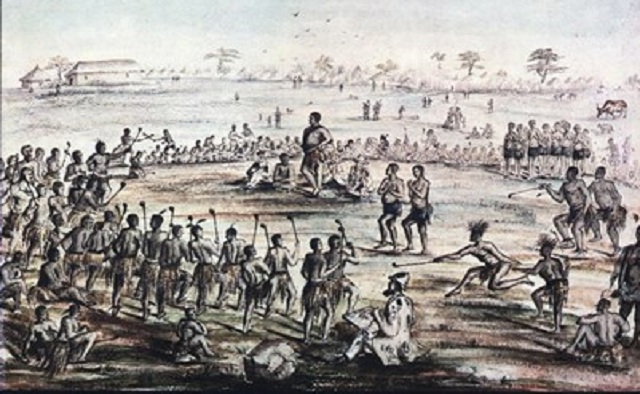
The Sunday News

Mzala Tom
Before colonisation and modernisation, Ndebele people had no concept of divorce. Marriage was a permanent polygamous institution that dissolved through the death of either party to the contract.
Witchcraft, infidelity, violence or any other misdemeanours by either party were not recognised as grounds for separation between two married people. Divorce was a borrowed concept that came with colonisation, Christianity and modernisation.
There are two key reasons why divorce was not an option. The first lay with the concept of lobola and the second revolved around the spiritual transactions that took place through theMzala Tom
Before colonisation and modernisation, Ndebele people had no concept of divorce. Marriage was a permanent polygamous institution that dissolved through the death of either party to the contract.
Witchcraft, infidelity, violence or any other misdemeanours by either party were not recognised as grounds for separation between two married people. Divorce was a borrowed concept that came with colonisation, Christianity and modernisation.
There are two key reasons why divorce was not an option. The first lay with the concept of lobola and the second revolved around the spiritual transactions that took place through the ukucola ceremony.
Lobola was designed to extend lineages/bloodlines. A woman was used to extend and grow a particular clan. Her parents/clan therefore had to be ‘paid’ for assisting the particular clan to extend its bloodline.

divorce
When a Ndebele woman left her home the father instructed her with these words “ufike uveze abantu/Go and bring forth children”. Procreation was the primary reason for paying lobola.
Ukulobola abantwana simply means that you are paying a particular family in exchange for the production of children through their daughter. Lobola was therefore an acknowledgment of the role the bride will play in extending a particular lineage and ensuring that their bloodline would never be exterminated.
Among the Ndebele cattle were the highest symbol of wealth and were the currency used in lobola transactions.
The commercial value of cattle in the society cannot be over emphasised. Lobola cattle could lift the poor and catapult them to a higher social status.
It is for the above reasons that the lobola transaction was irreversible. Both families had to ensure that the transaction was fulfilled to the letter.
If the bride died prematurely or was barren, a replacement had to be quickly provided by her family if imbiza (concoction) could not help.
If the woman was alleged to be a witch, disrespectful or unfaithful, these were not grounds for divorce.
Her primary duty was to produce offspring for her in-laws. As long as she did her part other misdemeanours had to be resolved amicably.
For example, she could be sent back home for counselling and come back later. If the husband was ill treating her she would be told to be patient while the man was being counselled by the elders.
For the above reasons undoing the lobola transaction had grave consequences which were difficult to undo. The lobola relationship was thus permanent as it ensured extension of a lineage and transferred wealth between families.

Pre-colonial Ndebele
The second reason why divorce was not possible was the blood covenant and spiritual transactions and blood covenant that took place during the wedding ceremony as the bride was handed over to her in-laws.
When the bride arrived at the groom’s place the father in law performed the ukucola ceremony.
Some delegates travelling with the bride would then go to the cattle kraal to identify the beast that would be slaughtered to cola the bride.
Ukucola means to cleanse, to express happiness or wish one success. After the selected beast was killed, the father in law would anoint the bride with the bile (inyongo) on her head, back of the neck, joints etc.
The process was known as ukuthela inyongo. The bitter, yellowish green substance worked as some form of libation to the ancestors. As the father applied inyongo he informed the ancestors of the marriage contract.
Ukucola was thus a prayer and special appeal to the in-laws’ ancestors to accept the bride as part of the family and graft her in as the vessel that would extend their bloodline.
The process was eternal and could not be undone because it was sealed by the blood covenant made.
However, after colonisation people mixed cultures and divorce was embraced in the general marriage customs.
Some began to demand their cattle back, send spouses away and women began running away from unhappy or polygamous marriages. — @RealMzalaTom
Lobola was designed to extend lineages/bloodlines. A woman was used to extend and grow a particular clan. Her parents/clan therefore had to be ‘paid’ for assisting the particular clan to extend its bloodline.
When a Ndebele woman left her home the father instructed her with these words “ufike uveze abantu/Go and bring forth children”. Procreation was the primary reason for paying lobola.
Ukulobola abantwana simply means that you are paying a particular family in exchange for the production of children through their daughter. Lobola was therefore an acknowledgment of the role the bride will play in extending a particular lineage and ensuring that their bloodline would never be exterminated.
Among the Ndebele cattle were the highest symbol of wealth and were the currency used in lobola transactions.
The commercial value of cattle in the society cannot be over emphasised. Lobola cattle could lift the poor and catapult them to a higher social status.
It is for the above reasons that the lobola transaction was irreversible. Both families had to ensure that the transaction was fulfilled to the letter.
If the bride died prematurely or was barren, a replacement had to be quickly provided by her family if imbiza (concoction) could not help.
If the woman was alleged to be a witch, disrespectful or unfaithful, these were not grounds for divorce.
Her primary duty was to produce offspring for her in-laws. As long as she did her part other misdemeanours had to be resolved amicably.
For example, she could be sent back home for counselling and come back later. If the husband was ill treating her she would be told to be patient while the man was being counselled by the elders.
For the above reasons undoing the lobola transaction had grave consequences which were difficult to undo. The lobola relationship was thus permanent as it ensured extension of a lineage and transferred wealth between families.
The second reason why divorce was not possible was the blood covenant and spiritual transactions and blood covenant that took place during the wedding ceremony as the bride was handed over to her in-laws.
When the bride arrived at the groom’s place the father in law performed the ukucola ceremony.
Some delegates travelling with the bride would then go to the cattle kraal to identify the beast that would be slaughtered to cola the bride.
Ukucola means to cleanse, to express happiness or wish one success. After the selected beast was killed, the father in law would anoint the bride with the bile (inyongo) on her head, back of the neck, joints etc.
The process was known as ukuthela inyongo. The bitter, yellowish green substance worked as some form of libation to the ancestors. As the father applied inyongo he informed the ancestors of the marriage contract.
Ukucola was thus a prayer and special appeal to the in-laws’ ancestors to accept the bride as part of the family and graft her in as the vessel that would extend their bloodline.
The process was eternal and could not be undone because it was sealed by the blood covenant made.
However, after colonisation people mixed cultures and divorce was embraced in the general marriage customs.
Some began to demand their cattle back, send spouses away and women began running away from unhappy or polygamous marriages. — @RealMzalaTom



